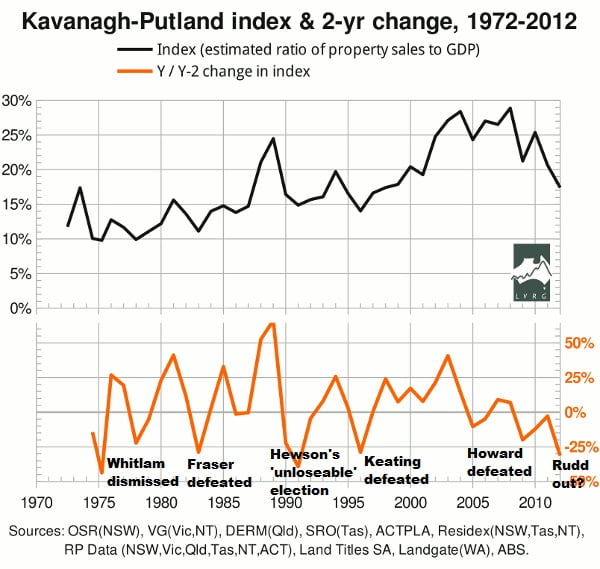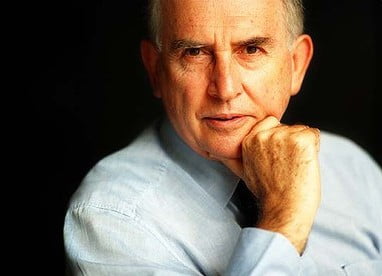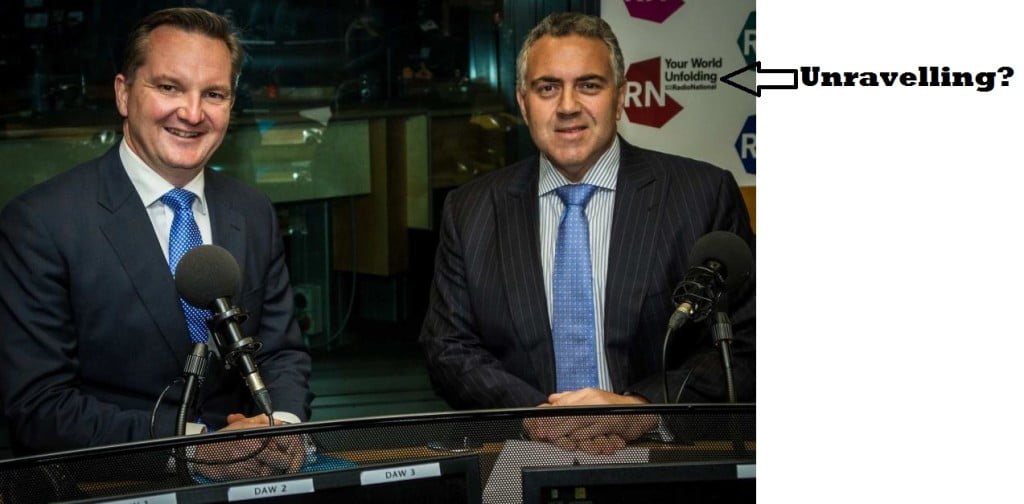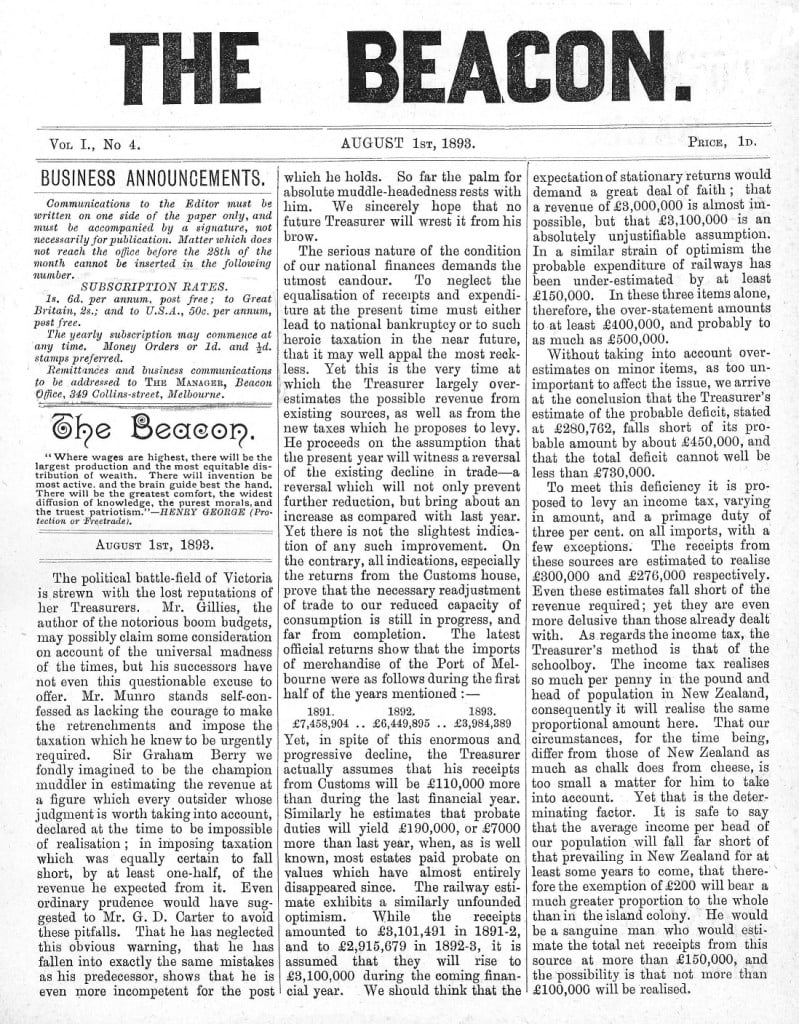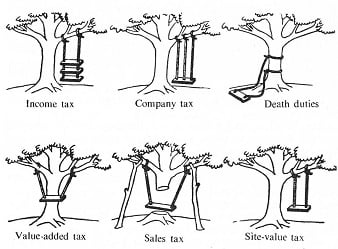 I think Deakin University researcher Philip Soos may have his tongue planted firmly in his cheek in this piece:-
I think Deakin University researcher Philip Soos may have his tongue planted firmly in his cheek in this piece:-
Australian Housing Market Special
By Philip Soos
They’re expressing concerns about high housing prices in Australia! For goodness sake! Streams of commentary about first home owners having to take out big mortgages. Poor them! For example, TV producer and freelance writer Tom Whitty’s article in The Age.
When will they come to understand growing housing prices are good for us? (Meaning, for we who matter.) After all, we have most of you onside already: almost 70 per cent of Australians own their own home, and close to two million own an investment property. But best of all, the majority of property is concentrated into the hands of we, the one per cent!
And as prices increase, so through the wealth effect does consumption. Everyone should be happy: owner-occupiers, investors, bankers, insurers, real estate agents, not to mention our political parties. As your house prices skyrocket, there’s you free ATM: more cars, holidays, furniture, conspicuous consumption – indeed, the Australian way of life.
Some even claim a housing bubble exists! We have been hearing this nonsense for years now, and still no “bubble” burst! Misguided propagandists and self-promoters Steve Keen, David Collyer and the MacroBusiness crowd have all been proven wrong. So relax, folks, there is no bubble!
Such people are patently un-Australian, seeking to undermine the faith we Aussies have in rock solid real estate. In fact, there has never been a better time to buy! Mark Bouris, the upstanding director of Yellow Brick Roads, a wealth advisory firm, knows that property will continue to boom into the future.
What makes land valuable is the rental income it produces, net of land tax and rates, which is then capitalized into a market price at a discount rate. If land tax and rates are removed, this leaves more rental income for the owners, thus making land more valuable. Prices increase as a result.
There can be no downside! Theoretically, with a financial sector ready to provide every greater fool with loans they have little hope of ever paying off, the price of land is infinite.
Simply put, any impediment to rental incomes and/or capital values should be eliminated. This has the effect of freeing up much rental income to be capitalized into prices, including the leverage from bank credit. Higher prices obviously mean more debt repayments to the banks, enriching them in the process. This is bad? If we are serious about promoting the goal of higher prices, politicians must be willing to do the right thing and enact policies to make property even more attractive, for the sake of banks and our good selves.
To this end, all political parties in Australia need to support the “Rentier”, primarily in the form of tax expenditures: the owner-occupier exemption from capital gains and land taxes; from income tax; GST on imputed rents; the 50 per cent discount on capital gains tax for investment properties; and, of course, negative gearing. These tax expenditures are quite hefty, reaching $50.4 billion in 2005-06, and $53 billion in 2007-08, with a greater proportion rightly going towards the wealthiest households. Why miss out on these?
The Howard government set the course by providing 50 per cent discount on capital gains tax in 1999 for investments held for at least one year, but it is now time for this tax to be scrapped entirely. Why not allow the backbone of the economy, we property investors, to fully privatize the uplift in their land values? The most pernicious of all taxes, the land tax, must therefore also be eliminated. After all, if owner-occupied residential property is exempt, why not all property?
On a positive note, state governments have started to make further inroads by increasing the thresholds for land tax; but, of course, it’s best not to penalise we landed gentry and speculators at all. Income taxation on any positive net rental cash flows should also be permitted to go the way of the dodo, and owner-occupiers must be allowed to deduct mortgage interest costs against their personal tax liability, as in the United States, which is even more generous than Australia’s negative gearing. We have much to learn from the great US in this regard.
Much like land tax, council rates have the unfortunate effect of lowering land values. Local governments may complain if we reduce council rates, but an alternative revenue stream might come in the form of grants from state governments raised by increasing inefficient payroll taxes and motor vehicle duties. Already a positive move in this direction has been made by converting from site value rating (SV)–basing rates upon land value only–to Capital Improved Value (CIV) which now taxes both land and dwellings in many areas across Australia.
Certainly, in Melbourne, where housing prices have boomed more than any other capital city, every municipality now bases their rates upon the land and dwellings, rather than land alone (Monash was the last holdout). If we are to optimise real estate profits, council leaders in Queensland and New South Wales (where SV still remains the rating base but is fortunately being overcome by “minimum rates”) should also enforce a reversion to CIV rating, if not the abolition of rates altogether.
As stamp duty has the effect of slightly depressing housing values, it should also be eliminated and gambling taxes on ne’er do wells used to plug the hole in revenues.
The federal and state level First Home Owner Grants (and Boosts) worked spectacularly to inflate housing prices in 2000 and 2008. It is to be commended as a bonanza for vendors -the more important party in the exchange. Unfortunately, the Western Australian government has lowered and restricted grants to newly constructed homes: this restriction should be resisted!
Fortunately, with privatization, deregulation and liberalization of the financial, banking and real estate sectors gaining pace throughout the 1980s under the Hawke and Keating administrations, the Labor government has jettisoned any pretence of still being a traditional labour or socialist party and fallen into line with their rent-seeking Liberal colleagues.
Ex-Prime Minister John Howard ranks deregulation as one of his greatest achievements. The Big Four banks – CBA, ANZ, WBC and NAB – now own and control the entire banking system and the parliaments. This is all to the good. While some may allege the FIRE sector is a cost centre to be minimized, it is rather a profit centre which must be maximized for the sake of Australia.
With the Coalition, Labor, Greens, ASIC, APRA, ATO, RBA, economists, journalists and mass media now in our pockets, finance is now free to predate upon the middleclass and the poor. The persistent interloper, Denise Brailey, and her so-called Banking & Finance Consumers Support Association is proving to be a fly in our ointment – though luckily APRA and ASIC claim they know nothing.
Just as the banks properly own and control the financial and political system, property developers are learning to do much the same with new housing construction and fringe land on the outskirts. They are showing enterprise in bribing councillors at the local government level. This tends to yield attractive returns.
The move away from efficient and affordable government development of local infrastructure (or the private alternative) towards developer charges has served to make new property more expensive. This has proved a bonus for everyone involved.
Infrastructure is very important to land owners, as it helps to increase the value of our real estate portfolios: that’s why property magazines encourage we investors to buy near infrastructure corridors. Government knows how to finance infrastructure to our benefit, utilizing user-pays rather than beneficiary-pays systems. Case in point is the British commercial whistle-blowing landlord Don Riley. When the taxpayer-funded extension to the Jubilee Line through South London was completed in the late 1990s, it raised the value of his office properties by more than all the taxes Riley had paid over the last 40 years.
Clearly, windfall profits from infrastructure are a godsend to we propertied class, and these have occurred with the assistance of the Howard/Rudd/Gillard/Rudd governments. New research shows residential land values rise by around $50,000 for a house located close to a railway station in Melbourne. Be there! Buy there!
Self-managed super funds (SMSFs) have also become a popular method of minimizing property tax liabilities. Before retirement, both capital gains and rental income are taxed at 15 per cent, falling to 10 per cent for capital gains if the property is held for more than one year. After retirement, there is no tax liability on either. Any and all liabilities should be removed to promote greater investment through SMSFs.
While much has been made of foreign investment in the residential property market, the government is quite correct to provide little information about such investment. If Australians are becoming hesitant about taking on more debt, the obvious alternative is to open our borders to foreign investment to take up the slack. It’s arguable foreign investment needs to be deregulated further for best practice’s sake.
Whilst not impacting upon housing prices as much as speculation, rising rents (imputed and actual) remain a blessing for we owners. The Labor government under Rudd and Gillard has gifted landlords with manna from heaven, cramming our cities full of immigrants from 2007 onwards in order to raise our rents, generating the financial stress that will keep the plebs subservient. It may sound harsh, but it needs to be remembered renters are simply vermin. The government has also enacted the National Rental Affordability Scheme (NRAS) to subsidize we investors, ostensibly for the benefit of our tenants. Smooth!
Along with the NRAS, the Commonwealth Rent Assistance (CRA) scheme is another policy the FIRE sector should well support, because it increases tenants’ purchasing power, placing upward pressure on rents (at the expense of taxpayers). To assist landlords, it’s hard to better increasing the subsidies to the NRAS and CRA schemes, combined with a doubling of our immigration rates.
Australian Housing Market Policy Overview |
Policy | Status | Note |
| Poor | Improving | Excellent | |
OO exemption from capital gains tax | | | X | Tax treatment of owner-occupier housing superb apart from lack of mortgage interest deductibility. Accounts for almost 70 per cent of total housing stock. |
OO exemption from land tax | | | X |
OO exemption from imputed rent (income tax) | | | X |
OO exemption from imputed rent (GST) | | | X |
OO mortgage interest deductibility | X | | |
Property investor capital gains tax discount | | X | | Investment property not treated as well as owner-occupier stock, there is still room for more improvement. |
Income taxation on rental income | | X | |
Negative gearing | | | X |
Land tax on investment property | X | | |
Council rates on residential property | | X | | CIV better than SV. |
Stamp duty discounts | | X | | Need more discounts. |
Federal/State First Home Owners Grant/Boost | | X | | Subsidies too low. |
Financial deregulation | | | X | FIRE sector very powerful, able to lend out colossal amounts of credit to any NINJA. |
Ability to engage in predatory lending | | X | |
Hiding widespread loan application form fraud | | X | |
Buying off regulators (APRA and ASIC) | | | X | Coalition, Labor, Greens, RBA, APRA, ASIC, ATO, economists, experts, journalists and mass media in pocket of FIRE sector. Conformity to party line impresses Pyongyang. |
Rendering RBA and ATO impotent | | | X |
Purchase of political parties and democracy | | | X |
Ensure academia too cowardly to do anything | | X | |
Ignoring experts’ conflicts of interest | | | X |
Mass media reliance on FIRE sector advertising | | | X |
Maximize immigration flow | | X | | Need more taxpayer subsidies and immigrants to increase rents for landlords. |
Increase Commonwealth rent assistance | | X | |
More taxpayer funding of NRAS program | | X | |
Make SMSF property more attractive | | X | | SMSF rules improving. |
Implementation of developer charges | | X | | Developers corner all land allotments. Must step up bribery of councillors. |
Developer land banking | | | X |
Council politicians in pocket of developers | | X | |
Increase infrastructure construction | | X | | Must increase funding. |
Government-sponsored mortgage insurer | X | | | Far behind the US in this regard, need to further socialize risks and costs. |
Government-sponsored security guarantee | X | | |
Government-sponsored mortgage enterprises | X | | |
With up to thirty-two policies to choose from, our governments have plenty to consider when enacting landlord-favourable economic reform. Although housing prices are currently at historical highs, there is plenty of room for improvement. With enough effort and commitment to such critical reforms, average prices may be able to reach $22.4 million by the time we turn 85 years of age, according to “Property Professor” Peter Koulizos.
Under this scenario, the price to income ratio will rise to 50, experienced also in newly progressive places such as China, Pakistan and Bangladesh.
The noxious influence of the social welfare sector, namely the Australian Council of Social Service and Australians for Affordable Housing, should be destroyed, along with those “academics” and “researchers” claiming a real estate bubble exists. They simply can’t be brought to understand there’s no bubble and that high prices are good for Australia.
Ministries of Housing should be privatised and run by State real estate institutes in order to ensure only the correct information, vetted by responsible experts, is reported in the mass media and journals of professional opinion.
RP Data Rismark, APM and Residex should be elevated to the level of gods and any of their contradictory analyses assiduously overlooked. State and territory government instrumentalities are to be commended for selling their data collection to these bodies.
The real estate-run Ministry of Housing could also help re-educate people from the falsified history of housing and land markets. Australian history is littered with such misinformation that “asset bubbles” end in recession and depression. It is even said the early 1970s saw the build-up and subsequent collapse of dual commercial and residential bubbles, when we all realise it was nothing of the kind: it was simply the OPEC crisis.
Then there’s a bubble now, they say. Harrumph!
It’s important the public remain ignorant of the fact that large land owners never pay a cent in tax. Productive businesses and labour can continue bearing the brunt of government revenue (from the 419 taxes and tax-like fees, their deadweight losses and administrative costs). The middle class and the poor must know their place and rank, and be kept in it.
We must acknowledge the hard work of Andrew Wilson, Christopher Joye, Mark Bouris, Bill Evans, Enzo Raimondo, Lucy Ellis & Co. who constantly advise there is no bubble, thereby promoting our views.
It’s high time the Australian public got off its high horse and stopped complaining about high housing prices and rents. If they were to open their eyes, they would see it is in their best interests to maximize land owners’ returns. It is quite un-Australian to dream of financial stability, small mortgages, fair pricing of consumption items and low debt servicing ratios.
In a post-industrial society the FIRE sector is clearly our saviour. It only remains for the GST to be increased to 30 per cent to aid with the program of eliminating all property taxes.
As a most influential person was wont to say: “Only then will cultural learnings of the FIRE sector for make benefit glorious nation of Australia.”

